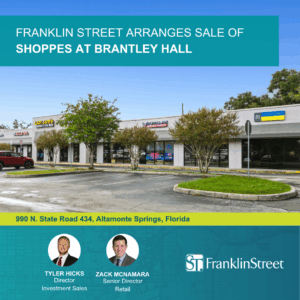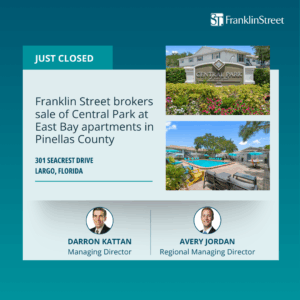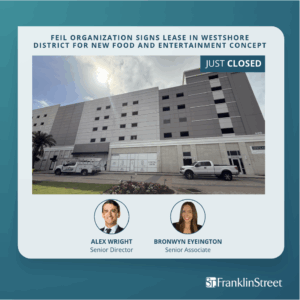TAMPA — For Doreen Rosselli, Carrollwood’s Grande Oasis condominium has provided a lushly landscaped refuge from the cacophony of urban life.
For Silviya Gregory, a young nurse from Bulgaria, Grande Oasis has meant home in a country where she has no family.
And for Yuclen and Horace Freeman, both in their 80s, Grande Oasis is where they assumed they would spend the rest of their days.
Not any longer.
In the past few years, an investment company connected to Texas billionaire John Goff has been on a buying spree that puts it close to owning at least 800 of the 1,000 units in Grande Oasis at Carrollwood, one of Tampa Bay’s largest condo complexes. Under Florida law, that would be enough to force residents such as Rosselli, Gregory and the Freemans to sell their condos — probably at a big financial loss — so Grande Oasis could be converted to apartments.
“I came to this country 11 years ago with a suitcase,” said Gregory, 32. “I worked very hard to achieve the American dream. I thought that no matter what happens, I will always have a home and a roof over my head. I have put everything into this place, and now I realize I’m going to be kicked out and there’s nothing I can do about it.”
Gregory and her neighbors are falling prey to a law passed in response to forces roiling Florida’s real estate industry — the disastrous 2004 hurricane season followed by a recession that sent condo prices plunging while increasing the demand for rental housing.
As buyers began snapping up storm-damaged and foreclosed condos, the Legislature in 2007 amended the law to make it easier to do needed repairs. But there was a loophole — the changes also made it easier for buyers who acquired 80 percent of the units in a complex to vote to convert to rentals and force the remaining individual owners to sell and leave.
With condo-to-apartment conversions increasingly common, Florida lawmakers this session are considering bills that would provide compensation and better protect individual owners like Gregory. But she and others say the bills contain another big loophole that, unless removed, could wipe out the protections.
Meanwhile, the Texas investors buying in Grande Oasis have enough units to control the association board but have yet to reach the 80 percent threshold needed for a conversion to apartments. That means units are still appearing for sale and catching the attention of unsuspecting potential buyers.
Joanna Owen, a lawyer in St. Louis, is among them. Looking for a warm-weather retreat in a city where her son considered attending college, Owen thought she had landed a good deal in January on a bank-owned Grande Oasis condo she found on auction.com.
Two months later, Owen has been unable to close her purchase even though she has a contract with the bank. After doing her own research she discovered what others already knew — the investor-controlled condo board wouldn’t approve a sale to anyone other than the investors.
“You’ll never be able to buy this property,” a real estate agent finally told Owen.
• • •
Built in 1991 a few blocks east of Dale Mabry Highway, Grande Oasis tracks Florida’s modern boom-and-bust cycle.
It began as an apartment complex but was sold to a South Florida group and converted to condos during the price frenzy of the early 2000s. About half of the units sold, some for more than $225,000.
Rosselli, a corporate travel counselor, was among those who bought at the peak, paying $183,300 for her two-bedroom unit.
“It’s beautiful here,” she said of the complex whose street names — Antigua, Saint Bart’s, Bonaire — evoke a tropical paradise. “What I liked is that even though you’re more or less in the city, once you pull in here it’s very lush with lots of flowers and plants. I love wildlife, and there are ducks and turtles on the lake.”
Around 2007, the market began to sink and by 2011 many units were in foreclosure. The complex went into receivership, and two companies — Grande Oasis Investments LP and Grand Oasis Investments LLC — began buying up units.
Corporate records show both companies at 500 Commerce St., Suite 700, Fort Worth, Texas. That is also the address of Goff Capital Partners, a private investment firm founded by accountant turned real estate mogul John Goff.
According to an executive bio, Goff is managing principal of the firm, which primarily focuses on real estate investments and managing more than $4 billion in debt securities. Goff is also CEO of Crescent Real Estate Holdings, whose portfolio includes the Ritz-Carlton hotel in Dallas, famed Canyon Ranch resorts and several Class A office buildings in Texas, California and Nevada.
In 2012, with the Texas group owning more than half of Grande Oasis’ units, two new members were added to the condo association board — John Grant as president and Robert MacKenzie as vice president. Neither could be reached for comment, but an Internet search showed that a John Grant and a Rob S. MacKenzie have been principals in Goff Capital.
At a 2012 board meeting, Rosselli recalls, she and other owners learned that the condo documents had been amended to give the association right of first refusal, meaning they could torpedo sales to anybody but Grande Oasis Investments.
“They told us they were going to buy as many as they could,” Rosselli said.
At the last annual meeting, she confronted Grant.
“I told him I couldn’t sleep at night if I was going to take a couple of hundred people’s homes away. That stopped him, then he finally came out and said, ‘the law allows it so I’m okay. I’m not doing anything wrong.’ “
Under Florida law, those owning 80 percent of a condominium can terminate a condo association if not more than 10 percent of the owners object. Then one of two things typically happens: Owners of the remaining units get a percentage share of the converted apartment complex or they must sell back their units at fair-market value.
Owners who bought and financed at the peak could still be stuck owing far more than the current value.
Rep. Chris Sprowls and Sen. Jack Latvala, both Pinellas County Republicans, have filed identical bills requiring that owners who object to termination be compensated for 110 percent of the purchase price or the fair market value, whichever is greater.
At Grande Oasis, owners who have read Sprowls’ bill say they are concerned about one particular section. As they interpret it, a “bulk buyer” like Grande Oasis Investments would not have to pay compensation if it disclosed in its termination plan that it intended to sell the newly converted apartment complex.
“The whole purpose of this (Texas) investor coming in is to convert to apartments and then turn around and sell again,” said Gregory, the nurse from Bulgaria. “So all they have to do is state that they intend to sell and all of those so-called protections don’t apply.”
Sprowls, while acknowledging it’s an “incredibly complex issue,” thinks the fears are unwarranted.
“The objective of the bill is singular — protect the condo owners faced with being forced out, regardless of what the bulk buyers do after termination,” said Sprowls, whose district includes a condo complex, Madison Oaks, that is being converted to apartments.
Neither Goff nor those connected to him returned phone calls and emails about the ultimate plans for Grande Oasis. But one expert on multifamily housing says the market for apartment complexes is “red hot.”
“They’re becoming a very popular investment vehicle now in the grand scheme of investing,” said Darron Kattan, managing director of the Tampa real estate brokerage Franklin Street. ”Rent growth is very solid, occupancy is very good. There doesn’t appear to be any indication of any sort of pullback.”
When she bought her condo, a bank foreclosure, in 2010, Gregory wanted to avoid a mortgage, so she scrapped together $42,000 in cash by refinancing her car and borrowing money from her mother and a friend. The unit was in such bad shape she estimates she put another $35,000 into repairs.
Last November she tried to sell and got an offer of $85,000. But the buyer backed out “once he learned the situation here,” she said. “The only available buyer is going to be the association.”
Elizabeth Faulk bought a Grande Oasis condo three years ago for $49,100 and recently sold it to the association for $60,300.
“I bought mine as a foreclosure, so I was able to buy a lot cheaper than what it sold for,” said Faulk, who used to practice real estate. “Some people are in a very bad situation because they most likely will not get their money back, and I feel sorry for these people. But I don’t see anything illegal or improper about the way (the investors) are handling the situation.”
But Patricia Harris, who took money from her retirement account to buy her condo in 2009, is appalled that Florida law makes it so easy for investors to take away people’s homes.
“If it can happen here, it can happen in any condo complex and that’s absolutely ludicrous. It’s been a struggle for people to buy a home, maintain a home, and to have something like this happen is terrible.”
For full story, visit https://www.tampabay.com/news/business/realestate/florida-law-could-help-rich-investors-force-condo-owners-from-their-homes/2221237



